%20(1)_NByQ1cEE_O.png?updatedAt=1714023489377)
How Employee performance management software can boost your employee's morale?
Employee performance management is not just about evaluating productivity; it’s a strategic approach that can uplift employee morale and foster a thriving workplace environment. By implementing effective performance management practices, organizations can cultivate a culture of recognition, growth, and engagement, ultimately leading to higher levels of employee satisfaction and motivation.
Increase employee morale using performance management software:
Let’s delve into how employee performance management can make a substantial difference in boosting morale within your workforce.
Setting Clear Expectations and Goals
At the heart of effective performance management lies the establishment of clear expectations and goals. When employees understand what is expected of them and have well-defined objectives to strive for, they feel a sense of purpose and direction in their work. By aligning individual goals with broader organizational objectives, performance management creates a roadmap for success that empowers employees and fosters a sense of ownership over their work.
Providing Ongoing Feedback and Support
Regular feedback is essential for employee growth and development. Performance management processes that incorporate continuous feedback sessions provide employees with valuable insights into their strengths, areas for improvement, and progress toward goals. This ongoing support and guidance not only help employees perform better but also demonstrate that their contributions are valued, ultimately boosting morale and job satisfaction.
Recognizing and Rewarding Achievements
Recognition is a powerful motivator that can have a profound impact on employee morale. Effective performance management systems include mechanisms for acknowledging and rewarding employees’ achievements and contributions. Whether through formal performance evaluations, informal praise, or tangible rewards, recognizing employees for their hard work and dedication reinforces positive behavior, fosters a culture of appreciation, and boosts morale throughout the organization.
Facilitating Opportunities for Growth
Employees are more likely to feel engaged and motivated when they see opportunities for growth and advancement within the organization. Performance management processes that identify employees’ development needs and provide access to training, mentorship, and career advancement opportunities demonstrate a commitment to their professional growth. By investing in employees’ development, organizations not only enhance their skills and capabilities but also increase morale and loyalty.
Cultivating a Culture of Transparency and Fairness
Transparency and fairness are essential components of a positive workplace culture. Effective performance management systems ensure that evaluation criteria are clear, objective, and consistently applied across the organization. By providing employees with visibility into the performance management process and ensuring that decisions are made fairly and transparently, organizations can build trust, foster a sense of belonging, and boost morale among their workforce.
Celebrating Successes and Milestones
Effective performance management involves celebrating successes and milestones along the way. Whether it’s meeting sales targets, completing a project ahead of schedule, or achieving a personal development goal, taking the time to acknowledge and celebrate these accomplishments reinforces positive behaviour, boosts morale, and strengthens team cohesion. By creating a culture of celebration and appreciation, organizations can inspire greater employee engagement and commitment.
What is performance management software?
Performance management software is a comprehensive tool designed to streamline and optimize the process of assessing, managing, and improving employee performance within an organization.
It typically encompasses various features such as goal setting, performance evaluation, feedback collection, skills assessment, and development planning.
Performance management software provides a centralized platform for HR professionals and managers to track employee progress, identify areas for improvement, and align individual performance with organizational goals.
By automating and standardizing performance management processes, this software enhances efficiency, transparency, and accountability, ultimately contributing to a more productive and engaged workforce.
Why do you need software to manage performance?
Managing performance is essential for any organization to thrive and achieve its objectives efficiently. Software plays a crucial role in this process for several reasons:
- Data Management: Performance management involves collecting, analyzing, and interpreting data related to employee performance, organizational goals, and key performance indicators (KPIs). The software provides a centralized platform for storing this data securely, making it easily accessible for managers and stakeholders.
- Automation: Manual performance management processes can be time-consuming and prone to errors. Software automates many tasks such as performance appraisals, goal setting, and feedback collection, streamlining the process and ensuring consistency across evaluations.
- Real-Time Feedback: Traditional performance management systems often rely on annual or semi-annual reviews, which may not provide timely feedback to employees. Performance management software enables continuous feedback loops, allowing managers to provide real-time feedback and coaching to employees, leading to improved performance outcomes.
- Goal Alignment: Effective performance management requires aligning individual goals with organizational objectives. Software facilitates goal setting and tracking, enabling employees to understand how their work contributes to the overall success of the organization.
- Performance Analytics: Software provides robust analytics capabilities, allowing organizations to track performance trends over time, identify areas for improvement, and make data-driven decisions. These insights help in allocating resources effectively and optimizing workforce productivity.
- Employee Development: Performance management is not just about evaluating past performance but also about fostering employee development and growth. The software enables the creation of personalized development plans, training modules, and skill assessments, empowering employees to enhance their skills and capabilities.
- Compliance and Legal Requirements: Many organizations operate in regulated industries or must adhere to specific legal requirements related to performance management. The software helps ensure compliance with regulations by providing audit trails, documentation, and adherence to privacy and security standards.
Performance management software is essential for organizations seeking to optimize employee performance, align individual goals with organizational objectives, and drive continuous improvement and innovation. It streamlines processes, provides valuable insights, and facilitates ongoing communication and development, ultimately contributing to the overall success of the organization.
Conclusion:
In conclusion, employee performance management is not just about evaluating performance; it’s about creating a supportive environment where employees can thrive and succeed. By using Performance Management 365, you can set clear expectations, provide ongoing feedback and support, recognize achievements, facilitate growth opportunities, promote transparency and fairness, and celebrate successes, organizations can harness the power of performance management to increase employee morale, drive engagement, and ultimately achieve greater success.
About HR365
HR365 leads and serves the industry in application development with focus on Power Apps, Microsoft Teams Apps, SharePoint Apps, Intranet branding, legacy app migration, and has out of box ready to deploy such as Employee Directory 365, Employee Onboarding 365, Helpdesk 365, Contract Management 365, Asset Management 365, Performance Management 365, Timesheet 365, Expense Tracker 365, Time Off Manager 365, and Custom Application. HR365 can help you in Integrate SharePoint Web Part in MS Teams in case you need any assistance.
Request more info/ Consult now
By proceeding, you accept Cubic Logics Terms and Conditions and Privacy Policy
Try It Free, No Obligation







